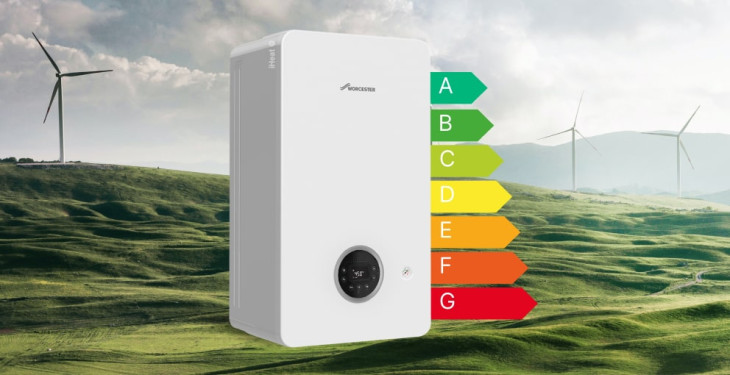

Written by Stephen Day
Gas Safe Engineer
Updated: 2nd June, 2025
The last thing you want to be thinking about while you're enjoying your summer holidays, or a vacation at any time of the year for that matter, is your boiler costing you unnecessary bills.
Get a new boiler quote, save up to £550 per year (0% APR available).
In this blog we’ll be taking a look at some helpful and handy tips and tricks to minimise wasteful energy usage when you’re not at home for an extended period.
Get a quote in 60 seconds, fitted as fast as next day!
0% APR finance available.
Whether you should turn off your boiler when you go on holiday depends on factors such as-
Trip duration
What time of year it is
Boiler type
For example if you’re taking a short trip it may not be necessary to fully turn your boiler off, but for longer ones, adjusting settings or taking precautions is advisable.
Lower your thermostat to a temperature that will prevent freezing but still conserve energy. Setting it to around 50°F (10°C) is usually sufficient to keep your home from becoming too cold while saving on heating costs.
Consider using a timer or programmable thermostat to automatically adjust the temperature in your home. Set it to a lower temperature during periods when you know you won't be home, such as during the day or overnight.

If you notice any cold spots on your radiators, it's a good idea to bleed them before you leave. This process removes any trapped air, ensuring optimal heat distribution when the heating is turned on.
Inspect your boiler and the surrounding pipes for any signs of leaks. Addressing leaks before you go on holiday can help prevent potential water damage or other issues while you're away.
Consider running a maintenance cycle on your boiler before you leave. This process helps remove any debris or sludge that may have accumulated, improving the overall efficiency of your system.
To prevent any potential leaks or water damage, consider shutting off the water supply to your boiler. This step is especially crucial if you have an older boiler that may be more prone to leaks.
If it's been a while since your last boiler service, scheduling one before your holiday is a smart move. A professional boiler service will ensure that your system is in good working order, minimising the risk of any unexpected issues while you're away.
The boiler is fired to identify any faults
The main components including the burner, heat exchanger and the spark electrode are checked
Flue terminals and internal flue compartments are checked and sealed properly
Using a flue gas analyser, the burner is checked to make sure it’s burning efficiently
Boiler parts are cleaned if necessary
Gas tightness test is conducted to ensure there are no gas leaks
Boiler casing is checked to make sure it's sealed properly
A boiler service helps to make sure your boiler is running properly and can identify small issues early on before they become much more serious problems that could result in expensive repair costs or even replacement.

Having your boiler serviced also ensures that it is operating safely. This is incredibly important as each year around 60 people die from Carbon Monoxide poisoning each year due to its ability to go undetected in day-to-day life. A boiler service can help to identify a carbon monoxide leak and put a stop to it, keeping your family and home safe.
Your boiler warranty may also become invalid if you do not have it serviced annually by a Gas Safe registered engineer as many manufacturers state this as a requirement in their terms and conditions.
Here at iHeat we offer up to 10 Year warranties, so to ensure your warranty remains valid, you must have an annual service performed by a Gas Safe registered engineer.
In addition to taking the necessary steps to prepare your boiler for your holiday, consider the advantages of upgrading to a modern boiler.
Modern boilers offer numerous benefits that can enhance energy efficiency and improve overall performance.
One significant advantage is improved energy efficiency. Modern boilers are designed with advanced technology that significantly reduces energy waste.

They operate at higher levels of efficiency, meaning you save money on your energy bills and reduce your carbon footprint.
Upgrading to a modern boiler allows you to optimise energy usage even when you're away, leading to greater savings in the long run.
Another advantage of modern boilers is enhanced control and programmability. Many models come equipped with programmable thermostats and smart controls, allowing you to customise your heating schedule and remotely adjust settings.
This flexibility ensures that you can optimise energy usage based on your specific needs, whether you're at home or on holiday.
By leveraging the advanced control features of modern boilers, you can achieve optimal comfort while maximising energy savings.
Furthermore, modern boilers often incorporate condensing technology. This innovative feature allows the boiler to extract heat from the flue gases and recycle it back into the heating system.
As a result, the boiler operates with higher efficiency by reducing wasted heat. This not only lowers your energy consumption but also minimises environmental impact.
By upgrading to a modern boiler, you contribute to a greener future by reducing greenhouse gas emissions and promoting sustainable living.
Lastly, modern boilers offer increased reliability and safety. They undergo rigorous testing and adhere to strict safety standards. With extended warranties provided by manufacturers, you can have peace of mind knowing that your boiler is backed by a reliable and trusted product.
This ensures that your home remains warm and comfortable, even in your absence.
iHeat offers free, fixed price quotes in as little as 60 seconds!
Last updated: 2nd June, 2025

Written by Stephen Day
Gas Safe Engineer at iHeat
Stephen Day is a Gas Safe registered and FGAS certified engineer with over 20 years of hands-on experience in the heating, cooling, and renewable energy industry, specialising in boiler installations, air conditioning, and heat pump systems.
LinkedInArticles by Stephen Day are reviewed by iHeat’s technical team to ensure accuracy and reliability.

27th February, 2026
Condensing boilers are considered to be some of the most efficient boilers out there on th...
 Read Article
Read Article

26th February, 2026
Vaillant boilers use a variety of parts to ensure efficient operation. This section looks...
 Read Article
Read Article

26th February, 2026
Leaving the heating on low all day might seem like a way to avoid the chill without bursti...
 Read Article
Read Article
No obligation. Takes less than 60 seconds.